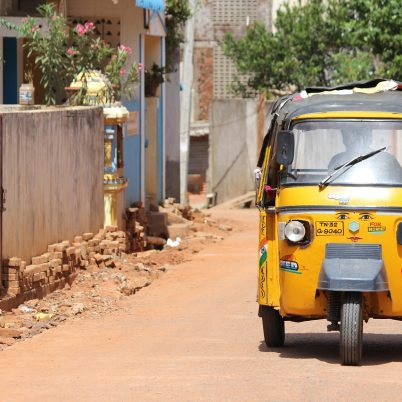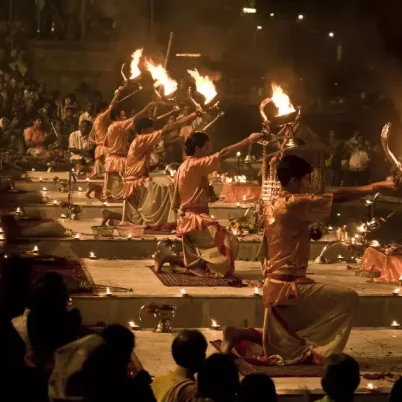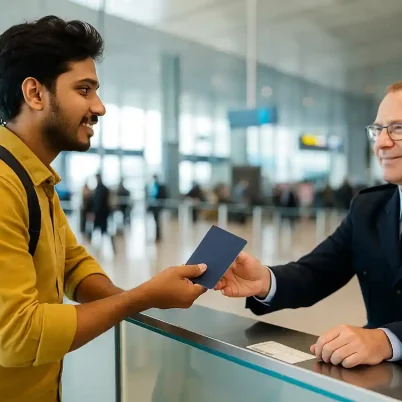
India is a land of diversity and there are so many different cultures out here that you might be overwhelmed trying to navigate your way through it. Every country in the world has their own set of etiquettes that you need to respect, and India is no different. “Cultural Etiquette in India for Foreigners: Do’s and Don’ts” is a guide for you if you are wondering how to become culturally appropriate in India. Read on to find out more!
Eating and Dining Etiquette
- Cows are considered sacred in Hinduism, so beef is not consumed in many parts of India. A lot of restaurants do offer beef dishes, but if you are dining with a Hindu, try to avoid eating beef in front of them unless they order it first. Similarly, Muslims in India do not consume pork.
- The majority of Indians eat with their bare hands. While it is not necessary for you to do the same, it is something you can try if you want to experience Indian culture. Keep in mind that you are supposed to eat only with your right hand, unless you are left-handed.
- However, while taking another helping of food from the communal dish, never use your fingers. Use a common spoon to do so.
- Do not eat or drink from someone else’s plate or glass, since it is not considered good manners unless you are extremely close with them.
- Wash your hands before and after your meal.
- Many Indians do not drink alcohol due to religion or upbringing. So if you are out for dinner, ask them if they drink or want any before ordering for them.

Dressing Etiquette
- India as a whole is quite conservative in terms of clothing, although many metropolitan cities have learned to embrace the western dressing styles. While there is no hard and fast rule about how to dress, you may be stared at by people if you are wearing something inappropriate, especially if you are a woman.
- Wear loose, breathable clothes, as India has a hot and humid climate in most parts. For women, keep your thighs, midriff, and cleavage covered, especially in rural areas.
- The places where you can be slightly lax about clothing are in Goa, where you can also wear bikinis at many beaches, and cities like Mumbai, where you can wear shorts and dresses without apprehension.
- If you are visiting any religious places, keep your shoulders and legs covered. Many places will also require you to cover your head with a scarf, handkerchief, or dupatta.
Religious Etiquette
- India is a diverse country with many religions co-existing in harmony. Every religion has different rules and traditions they follow.
- Many Hindu temples do not allow non-Hindus to enter certain parts of the temple. Similarly, many mosques do not allow anyone during their prayers, and many do not allow women to enter at all. Check to see if you are allowed to enter before visiting any religious place of worship.
- Remove your footwear before entering a temple, mosque, gurudwara, or any religious building. Most places will have shoe booths outside where you can leave your footwear.
- A lot of Hindu temples do not allow leather items like wallets, belts, or purses.
- Once you enter a temple and pray to the deity, you may be offered a “prasad”, which is a small morsel of food considered to be a blessing from the deity. It is usually something sweet. Never refuse it, and do not disrespect it. If you cannot eat it due to allergy reasons, apologize and give it to someone else, but do not throw it away.
- Many temples do not allow photography, and there are usually signboards in place that announce the same. Check with someone before clicking a picture of the temple.

Public Etiquette
- Public displays of affection are a big no-no in the majority of India. Indians are very conservative and public displays of affection are frowned upon. You may, however, see same-sex people holding hands in a friendly way.
- There is no concept of personal space in public places. Due to overcrowding, you might find yourself being pushed from everywhere. You may get used to it after a while, but if you feel a serious breach in your personal space, don’t hesitate to call them out.
- Indians consider feet to be unclean, which is why if any person or thing is touched by their feet, they instantly apologize or bring their hand to their eyes or heart as a way of apologizing. So do not disrespect anything, such as a book or bag, by intentionally touching it with your feet.
- In a similar vein, touching the feet of elders is considered a mark of respect among Indians. When you bow down to touch someone’s feet, it means that you respect them enough to even touch their feet which are considered inferior.
Greeting and meeting etiquette
- The traditional Indian greeting is pressing your palms together with fingers pointed upwards in front of your chest, saying “Namaste”. While you won’t find many people greeting each other this way in today’s times, it is still a good way for foreigners to greet someone, especially women.
- Do not directly decline an invitation or request, as it can be considered rude. You may be invited to a meal or to someone’s house, and if you do not want to accept the invitation, do not say no outright. Instead, use answers like “I will try”, “Maybe”, or “I will if it is possible”.
- Show respect to elders. Greeting them with a Namaste can go a long way.
Gift-giving
- You need to bring a gift with you if you are visiting someone’s house for the first time, or if there is any special occasion such as a birthday or a wedding.
- Gifts from your own country will be appreciated, as it adds a personal touch to the gift.
- Some gifts may be inappropriate due to religious affiliations. For example, gifting a bottle of alcohol to people who do not drink, or gifting beef or pork to someone who identifies as a Hindu or Muslim respectively may not be appropriate.
- Indians will not normally open gifts immediately or in the presence of the gift-giver.

Corporate Culture
- In a business setting, you should shake hands with a male colleague, but it is better for a female colleague to initiate the handshake. If they do not, you can greet them with a Namaste.
- Be on time for meetings. It is the professional thing to do, even if your colleagues are a bit late.
- Before starting business discussions, it is not a bad idea to ask about your Indian colleague’s interests, family, and more.
- Indian business meetings may take place in the office conference rooms or at a lunch or dinner. Your Indian colleagues may also invite you for lunch or dinner outside or to their house. Do not refuse directly if you can’t make it. Instead, offer a good excuse.
Tipping and Bargaining
- Indian restaurants do not have any strict rules about tipping, but it is expected. In high-end restaurants, tipping 10% of the bill is customary, while in smaller eateries, you can pay some amount as you see fit or round up the bill. Here is a guide for tipping in India.
- Bargaining in India is a skill, and it is highly encouraged in local markets all over India. Both the customer and the seller expect it, but it is more of a fun banter. Check out this blog for some tips on bargaining in India.
- However, do not bargain for handmade products sold indigenously, especially if you can afford to pay that amount. These local craftsmen earn their livelihood by selling such products, so if you can pay for something and feel like the price is fair, do not bargain.
- You also cannot bargain in fixed rates stores or branded shops in malls or elsewhere.
Communication
- Do not take it to heart if anyone asks you any personal questions. Indians can be culturally inquisitive, and easily ask questions about marriage, kids, family, etc in everyday conversations. If you do not wish to answer, try to dodge the question or give vague answers. But if you want to interact with them naturally, you can also ask them the same questions and they will be happy to answer.
- Indians have many non-verbal cues that may confuse foreigners, one of which is the head bob. Indians nod their head from one side to the other, which means “Okay”, or that they have understood.
Visiting someone
- If you are invited to someone’s house, you need to remove your footwear before entering.
- It is customary to bring a small gift like a box of sweets or cookies while visiting someone, especially if you are visiting for the first time.
- You do not need to be punctual while visiting someone’s house. It is normal and even appropriate to reach 15 to 20 minutes after the designated time.
- You may be offered a beverage like tea, coffee, or juice. Do not say no to everything – at least take some water if you do not want anything else.
- If you are invited for a meal, your hosts may sit and watch you eat, and eat their meal after you have finished yours. It is a common practice, since Indians believe that guests are akin to God, and they must be served first.
- You will definitely be persuaded to have more food. Try to decline respectfully if you don’t want to eat, but do not argue too much, since they will serve you extra anyway. It is okay if you do not finish all your food.
- A “thank you” for the meal is not really required, but praise for the cook while eating is always appreciated.
- Before leaving, ask for permission to leave by saying something like, “It is getting late. I should go now”, instead of simply saying goodbye and leaving.
Did you find this blog helpful? Then let us know! At India Someday, we create tailormade itineraries to India for you based on your preferences. Contact us and together we can plan the perfect trip to India for you!
Frequently Asked Questions
There are many etiquettes in India, some of which are to wear decent clothing, remove your footwear before entering a house or any religious place of worship, eating with your right hands, and more.
Greet Indians with a Namaste (na-mas-tay) instead of a handshake. Maintain a distance while talking to them. If you touch someone else with your foot intentionally, apologize immediately. Remove footwear before entering temples or houses, and be respectful of the local customs and traditions.
It is not illegal to hug, kiss, or hold hands in public, but it is frowned upon by others. Holding hands is normal in most parts of India, so it is okay to do so.
Some important cultural norms in India include respecting elders, removing footwear before entering homes and temples, dressing modestly, and observing local customs and traditions.
helping you travel your way
Everything you need to know about India is here We have tried writing about everything you may need help with for your trip to India, If you need help in planning a trip to India Get in touch with us to to plan your trip of a life time.











